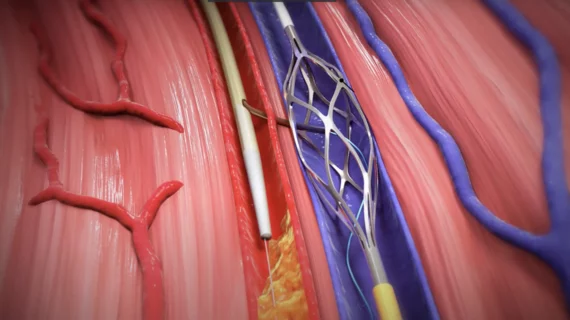FDA approves new minimally invasive CLTI treatment for ‘no-option’ patients at risk of amputation
LimFlow, a medical device company with locations in California and Paris, has gained approval from the U.S. Food and Drug Administration (FDA) for its LimFlow System for Transcatheter Arterialization of Deep Veins. The LimFlow System was designed to help reestablish blood flow in chronic limb-threatening ischemia (CLTI) patients who face a high risk of amputation and have no other endovascular or surgical options available to them.
The device, the first of its kind to gain FDA approval, is already commercially available in Europe.
“At LimFlow, our vision is to achieve great outcomes for patients suffering from CLTI. We developed a novel way to make a vein function as an artery with the goal of saving limbs, and by doing that, saving patients’ lives,” LimFlow CEO Dan Rose said in a prepared statement. “We thank the FDA for their collaborative review process, and we look forward to introducing and expanding use of the LimFlow System in the U.S.”
The FDA made its decision largely based on data from the PROMISE II trial, which included 105 “no-option” CLTI patients with a median age of 70 years old. Overall, transcatheter arterialization with the LimFlow device was successful in 99% of patients. The study’s primary endpoint, amputation-free survival after six months, was seen in 66.1% of patients. In addition, treatment was linked to a 76% limb salvage rate and significant reductions in patient pain. The full PROMISE II trial was published in the New England Journal of Medicine.[1]
“With LimFlow, we now have an option for the sickest patients who were previously consigned to limb loss and the downward spiral that accompanies it,” Daniel Clair, MD, co-principal investigator of PROMISE II and chair of the department of vascular surgery at Vanderbilt University Medical Center, said in the same statement. “Using this new treatment, we have seen many patients whose limbs have been saved, whose pain has been reduced or resolved, whose chronic wounds are healed or healing, and who can now look forward to happier and more active lives.”
A video demonstration of the LimFlow System is available here.

